- Home
- Paul Finch
Craddock Page 15
Craddock Read online
Page 15
More puzzling still was the unresolved question of how the two clerics had died. If the criminals had been responsible, they would hardly have left the bodies on the altar. Craddock thought again about the Spectre of St. Brae’s, and shuddered.
“I need to go back over there,” he said. “To the church.”
Madam Godhigfu was now standing in front of the fire. She glanced round at him as if doubting his sanity.
“Those people need stopping,” Craddock added. “I don’t know in what way yet, but they’re involved in something hideous. Unleashing something they can’t even comprehend.”
“But if there are as many of them as you say, and they’re all armed, how can you do anything on your own?”
“I too am armed … or rather, I was.” This was an ugly thought. “Highly likely my revolver is now in their possession. But I still need to get to the inn at King’s Fen. There, I can either round up assistance from the locals, or send a message to the nearest telegraph office, requesting more police officers.”
“You shouldn’t go back over there, unarmed.”
“Do you have a gun?” he asked.
“I have this.” She lifted something from behind one of the bookcases. “It’s an early medieval hunting-lance, from around the period of the Conquest.”
Craddock gazed doubtfully at the weapon. It had a long black shaft, probably cut from ash, and a spearhead of flat, beaten iron, which tapered to a vicious point. It was about four feet in length, and still solid, but it looked primitive in the extreme.
“As you can see, it’s been customised into a weapon,” she said, pushing it into his hands. “The haft shortened, the blade honed for greater penetration. Many of the Englishmen who sought refuge out here were little more than peasant farmers … they resisted the Normans with the basic tools of their trade. My father ploughed this one up from the bogs about sixty years ago. If nothing else …”
“I appreciate your help, Madam Godhigfu,” Craddock interrupted, handing the implement back, “but I don’t think you understand the sort of opposition we’re facing.”
“I understand that any man going up against a villainous crew responsible for several murders, needs to be armed in some way.”
He knew that she was trying to help. Lord God, he already owed her his life. But she really did live in another era. “Don’t think I’m being rude,” he said, “but this antiquated pig-sticker doesn’t constitute being armed in the nineteenth century.”
She shrugged. “As you wish. I suppose you’re also too modern a man to consider making use of my horse?”
“Your horse?”
“Of course, it’s neither as fast nor as tireless as a steam train, but we appear to be out of steam trains down here in the fens at the present time.”
He laid a hand on her shoulder. “You have a horse?”
A short while later, fully dressed again – Madam Godhigfu in another basic, work-a-day outfit, Major Craddock in the outdated ‘Cossacks’ frock-coat and Hessian boots, once sported by his hostess’s father – they went into a paddock at the rear of the cottage, where a dozen apple trees grew.
“This is Fireflax,” Madam Godhigfu said. “She isn’t a young animal, but she’s sturdy and she knows this region well. She won’t get lost or stumble into the mire.”
A handsome mare, with a delightful burnished coat, stood tethered to a stump, tossing her tawny mane. Craddock spent a few minutes making friends with her, then glanced around at the trees. “Don’t you find she eats the apples?”
“Not if I tell her not to.”
“I see. Well … she’s ideal, I must say.”
Madam Godhigfu made her way to a rickety fence, over which a saddle was hanging. “Perhaps not ideal. Riding is an acquired skill. And an ancient one, of course.”
Craddock followed her, for the first time that day smiling. “Madam, I humble myself in front of you. If there’s one ancient skill the world could never have done without, it’s mastery of the horse. At which I have some experience. I spent nearly three decades in the 14th Light Dragoons.”
Madam Godhigfu had just taken the saddle from the fence, when he told her this. She regarded him with new fascination, and, it seemed, approval.
“I thought you had the look and manner of a warrior,” she finally said. “I just knew you were worth saving.”
Fireflax was as good as her owner’s word. She got Craddock back by a circuitous route, but at a comfortable, sure-footed pace, so that he arrived outside the Wake-on-the-Water just as dusk was brewing. It was at least forty minutes before he’d have expected to make it on foot, even if he hadn’t given St. Brae’s Cathedral wide berth.
After leaving the animal with the stable boy, he went upstairs to his room, which he found untouched since he had been bundled out of it early that morning. The curtains were still drawn; fragments of pottery still strewed the carpet. When he searched his greatcoat, the revolver was missing. That didn’t entirely surprise him, but it was cause for alarm. He paused to think before returning downstairs. The villains had been thorough; he had to give them credit for that. In addition, they must have been careful, to get his unconscious body out of the tavern without anyone noticing.
He put on his own coat, hat and gloves over the garb he’d borrowed, and hurried downstairs to the lobby. Spall was in the tap-room, polishing glasses behind his bar. He was stunned to see Major Craddock with so many cuts and bruises. He was even more stunned by the question the major asked him.
“Telegraph office?” Spall shook his head slowly. “Well, sir … we don’t have anything like that round here. Not in King’s Fen.”
“So how do you contact the outside world?”
“Well … generally speaking, sir, we don’t.”
“In which case, we’ll have to sort this matter out ourselves,” Craddock said. “By hue and cry. I’m going to need the assistance of several local men. Law-abiding chaps, it goes without saying, but fellows who aren’t afraid to get their hands dirty. Can you recommend some?”
The landlord, who seemed to be in particularly helpless form, shrugged. “Sir, I’d like to assist, but I’m afraid I can’t. There’s no-one in King’s Fen who’ll go over to St. Brae’s at this time of night.”
“It isn’t even seven o’clock, yet.”
“But it’s getting dark, isn’t it, sir. They all know the stories too well.”
“And they tell me you people are descended from doughty resistance-fighters.”
“I don’t understand.”
“Never mind. It looks like I’m going it alone. I don’t suppose you have a firearm of any sort?”
“Now sir … that would be against the law.”
“Aren’t there any keepers in the neighbourhood, any farm-labourers?” Craddock banged his hand on the bar-top. “For God’s sake, man, there must be a poacher in the village!”
Spall gave an uneasy shrug. In his own simple way, of course, he was being loyal to his neighbours. After all, they didn’t know much about this chap, Craddock – except that he was a peeler. And you certainly didn’t go telling the names of local snares-men to peelers.
“The best I can offer you, I suppose, is this.” Spall reached under the bar and handed over a blackthorn truncheon with a leather strap attached. “And this too.” And he lifted a second, similar cudgel into view. “Because I’ll come over and help you, myself, if you’re that much in need.”
He gave what he clearly thought was a helpful, if slightly worried smile.
Craddock eyed the fellow carefully. Spall was a burly, handy-looking chap, but taking one assistant only – and a civilian to boot – might pose additional problems; the detective would have to look out for Spall as well as for himself. But then he thought again about Jake Charnwood and his band of cut-throats, and it struck him that help of any sort would be most welcome.
“Thank you,” he said, taking the first truncheon and slipping it under his belt. “ That’s rather what I was hoping for.”
Spall removed his apron, pulled on a coat and a pair of woolly mittens, and, clasping the second cudgel to his breast, led the way outside. A short while later they were on the causeway. It wasn’t quite as dark as they’d expected. Starlight glittered on the slick pathway and rippling meres to either side, while the distant church windows were radiant with candle-fire. However, less than half way across, they had their first scare of the evening. About two hundred yards distant, Craddock was astonished to see several glowing blobs performing some kind of jig in the creeping mist.
“What the devil …”
Spall put a mittened hand on his shoulder. “Nothing to worry about, sir. Corpse-candles.”
“Corpse candles?”
The landlord, a saturnine shape in the gloom, nodded sagely. “Will-o-the-wisp, if you prefer. Something natural, I dare say – a gas or chemical or some such thing. Folk round here are wary, but I’ve never known anyone come to harm by it.”
They continued, though Craddock – still thinking of the ghastly shape by the windmill – was so unnerved by the incident that he kept a wary eye on the glimmering orbs.
“I don’t mind telling you, Spall,” he said, “I’m glad you’re with me. A little off my beaten track, out here.”
“That’s what I’d heard, sir. No other constables due to join you either, are there?”
“No,” Craddock replied. “No, there aren’t …”
At once, it struck him what a curious question that had been – though it hadn’t so much been a question as an affirmation. Before the major could turn, a nub of cold steel jutted into the nape of his neck. He now knew exactly where his revolver had gone to.
“Just keep walking towards the church, sir,” Spall advised quietly. “And drop that billy-club while you’re at it.”
“What in the name of God are you doing?”
“Don’t mistake me for someone I ain’t, sir,” Spall said, jamming the barrel in all the harder. “I might be a country lout to you, but I know what side my bread’s buttered on. Now drop that club and get along, or I’ll shoot you down right here.”
Craddock extricated the truncheon from his belt and tossed it away. They pressed forwards and soon were ascending to higher ground, the angular mass of the church looming over them in the night. Light spilled in a rectangle from where its great west door stood ajar.
“What the hell’s this?” came a quavering voice. A hunched figure stepped out from the darkness. Craddock recognised him as one of the ruffians who’d tried to drown him. It was the one who’d been armed with a cutlass. Now he had that cutlass drawn, along with a pistol.
Spall hawked and spat. “What does it look like, you blind bleeding beggar? He’s still alive!”
The man with the cutlass could only gape as they pushed forcefully past.
Inside, the church was ablaze with candles. They occupied every corner, cluttering the pews and windowsills, the altar-rails and altar-table. Charnwood’s gang were taking even less of a chance than Hendricks had. Charnwood, himself, was standing in the central aisle, his sawn-off shotgun resting against his shoulder. Beside him, the curate sat bound on a pew. He was white-faced, one eye bruised and bloody. A cloth was stuffed into his mouth, and cords were drawn tight around his arms and torso.
“How much we paying you again, Charnwood?” Spall shouted, shoving Craddock forwards. “Because it’s too much in my opinion.”
Charnwood was visibly amazed to see the major. He walked slowly towards them.
Craddock wondered where the rest of the gang were, though he had his answer a second later, when he heard a clatter of rubble and the clink of hammers and chisels from down in the crypt. He also spotted a second sentry – again one of the men from earlier – in the upstairs gallery over the entrance to the north chapel. This one carried a rifle – from this distance it was indistinct, but it looked like the powerful, new-model Minie.
Charnwood was now staring the major in the face, still not quite believing it. Eventually though, his brutish features broke into an amused smile. “I’ve seen a lot in my time, but I must confess … I’m surprised by this.”
“Not as much as I am,” Craddock replied. He twisted to look at Spall. “Why in God’s name have you thrown your lot in with these vermin? They’re gallows-bait, every one.”
“That’s one way of looking at it, “ Spall raid. “Another is they’re my ticket away from this nowhere place. Major Craddock, next time you invest every penny you’ve got in a business, make sure it’s got prospects.”
“You can’t make the inn pay, is that it?”
Spall almost laughed. “You try having rats ands voles for customers. See how much money they’ve got to spend.”
“So you thought you’d gamble everything on a wild goose chase for some medieval trove that probably isn’t even there?”
“Oh, it’s there alright.” Spall shoved Craddock down into one of the pews, and slipped the revolver into his pocket. “Reverend Allgood knew it. He’d done his research well … he knew there was something behind that crypt wall. Course, what he didn’t know was how far behind.”
“And that’s why he told you?” Craddock said. “Because he needed help?”
“He thought he’d have sufficient with that sidekick of his, but he was wrong. College boys are no good for proper work. Doesn’t matter how many rowing-races they’ve won.”
“I think you’ve told him enough,” Charnwood advised.
“Who cares what you think!” Spall retorted. “You’re here because you’re being paid to be here. And that’s where it ends. Go and check on the lads … see if you can prevent any more of them disappearing into the darkness. That’s what you were brought in for.”
Reluctantly, but with a fleeting murderous glance at Spall – which Spall didn’t notice, but Craddock did – Charnwood slid away across the nave.
“So you’ve been having trouble with the spectre too?” Craddock said.
Spall gave it brief thought. “A few of us felt it was just bad luck … city lads getting lost on the marshes, and that.” He tried but was unable to suppress a violent shiver. “But not me. I’ve been round here long enough now to know something’s out there, something wicked. It’s why we brought Charnwood in. A mercenary … a cold-hearted killer to out-kill whatever’s been killing us.” He glanced irritably after Charnwood, as though dissatisfied with the service ‘his killer’ was so far providing.
“And you thought all this up, yourself?” Craddock asked. “The landlord of a country inn? I find it hard to believe that a man like you – as big a bumpkin as any of your customers, whatever you may think – has had the guts and wherewithal to pursue his interests by recruiting a gang of London’s most dangerous felons.”
“That’s probably because he didn’t,” came a female voice.
Craddock spun around, and was dumbfounded to find himself staring at the doorway to the crypt stairs, and the person now occupying it.
The handsome and vivacious Mrs. Corelli.
As before, she was stylishly dressed, though now for the evening, with a half-length jacket of crushed velvet atop her bustled evening gown, and her hair in tucked bronze curls. Yet there was no warmth in her smile as she crossed the church towards them. Her eyes glittered under their pretty, blue-gray shadow.
And all of a sudden, many things fell into place. Craddock had been flattered by the woman’s attention out on the marsh, but hadn’t it seemed a little misplaced? And hadn’t her persistent line of questioning seemed vaguely deliberate? And then of course, she was the one he’d informed about the planned observations in the church on the night when nothing actually happened; and it was she who’d managed to elicit the information from him that he was sole investigator, that no more constables were expected?
And that name, Corelli. How could he have failed to make the association?
The notorious Vito Corelli – an immigrant of Sicilian extraction, but later a successful and ruthless London criminal – had recently died, leaving behind hi
m a dockland empire built on the supply of illicit alcohol and opium. Craddock had never come into contact with him, but which police officer in the British Isles had not heard of him? The major now remembered reading that, on his death, Corelli had left a young English wife, though she hadn’t actually been named in the Saturday journals because it was felt that she, being a lady, was just as likely to be a victim as any one of the drug-addicts or syphilis-ridden whores her husband had indirectly created, or, for that matter, the all-too-numerous gangland rivals he’d ordered to be tortured or killed during his long, bloody reign.
On the evidence of this, the Saturday journals had made a big mistake.
“No doubt you’re wondering how I came to be involved in all this?” Mrs. Corelli asked. Up close, her smile was extraordinarily cold. “Well, my maiden-name was Spall. Jemima Spall.”
There was no obvious resemblance between her and the landlord: he was hefty and raw-boned, she delicate and petite – but with so unconventional a background, one could never tell. They might have had different mothers or different fathers.
“Don’t be too surprised, major,” she said. “Where else is a little brother to turn in his hour of need? Especially as his fascinating proposal promised a potentially enormous mutual benefit. We needed new lines of business; he needed a new life. Where could we lose?”
Craddock snorted. “You can lose if this legendary treasure turns out to be so much codswallop.”
“I rather think it isn’t,” she replied. “Whatever thing is trying to protect this troubled outpost, it wouldn’t be doing that for nothing.” She paused to let her words sink in. “At first I too was skeptical. But once I heard the two priests had been killed, my interest was kindled. Two holy men murdered! … this Spectre of St. Brae’s must have a serious purpose indeed.”

 Stolen
Stolen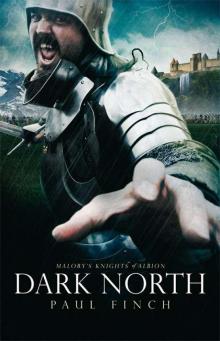 Dark North mkoa-3
Dark North mkoa-3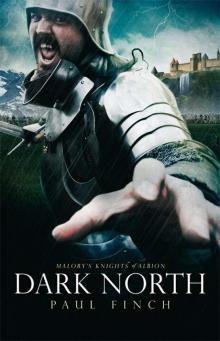 Dark North (Malory's Knights of Albion)
Dark North (Malory's Knights of Albion)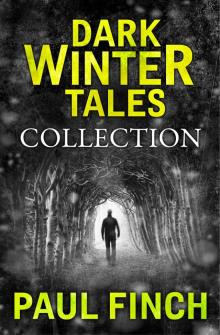 a collection of horror short stories
a collection of horror short stories Sacrifice
Sacrifice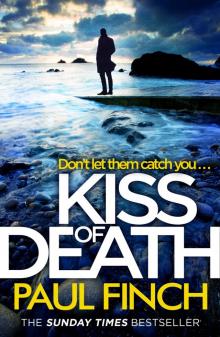 Kiss of Death
Kiss of Death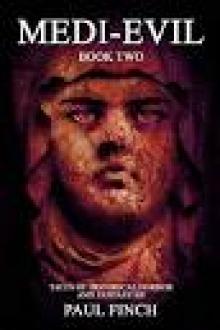 Medi-Evil 2
Medi-Evil 2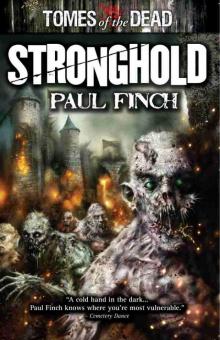 Stronghold
Stronghold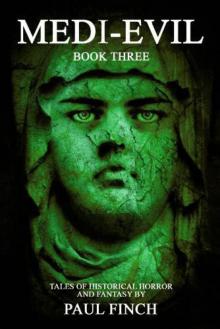 Medi-Evil 3
Medi-Evil 3 Dead Man Walking
Dead Man Walking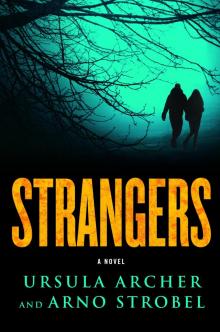 Strangers
Strangers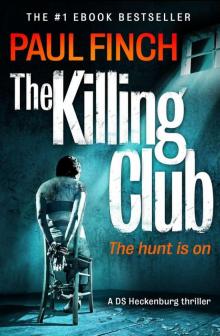 The Killing Club
The Killing Club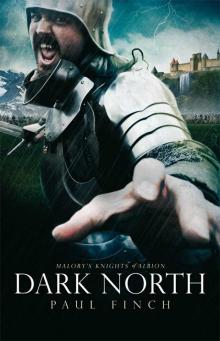 Dark North
Dark North A Wanted Man
A Wanted Man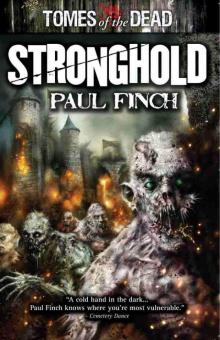 Stronghold (tomes of the dead)
Stronghold (tomes of the dead) Hunted
Hunted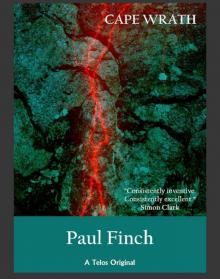 Cape Wrath
Cape Wrath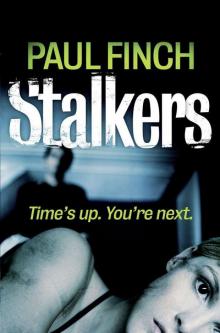 Stalkers
Stalkers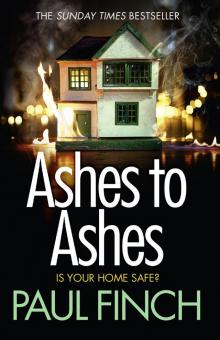 The Burning Man
The Burning Man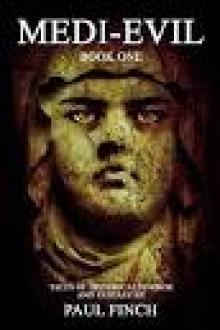 Medi-Evil 1
Medi-Evil 1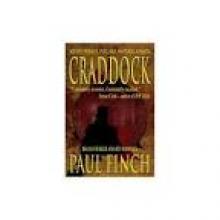 Craddock
Craddock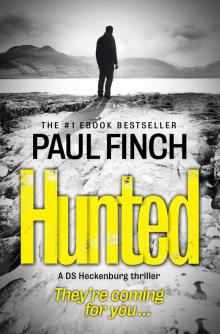 Hunted (Detective Mark Heckenburg Book 5)
Hunted (Detective Mark Heckenburg Book 5)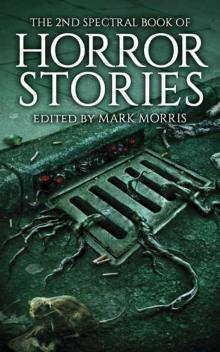 2nd Spectral Book of Horror Stories
2nd Spectral Book of Horror Stories The Chase
The Chase